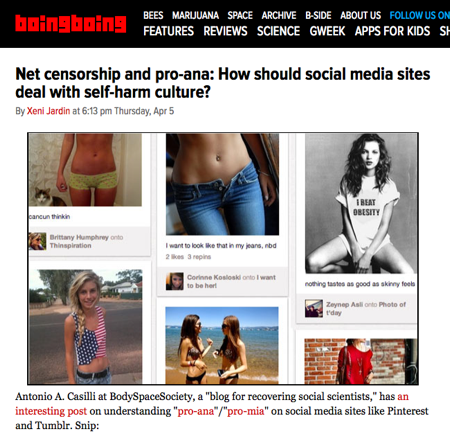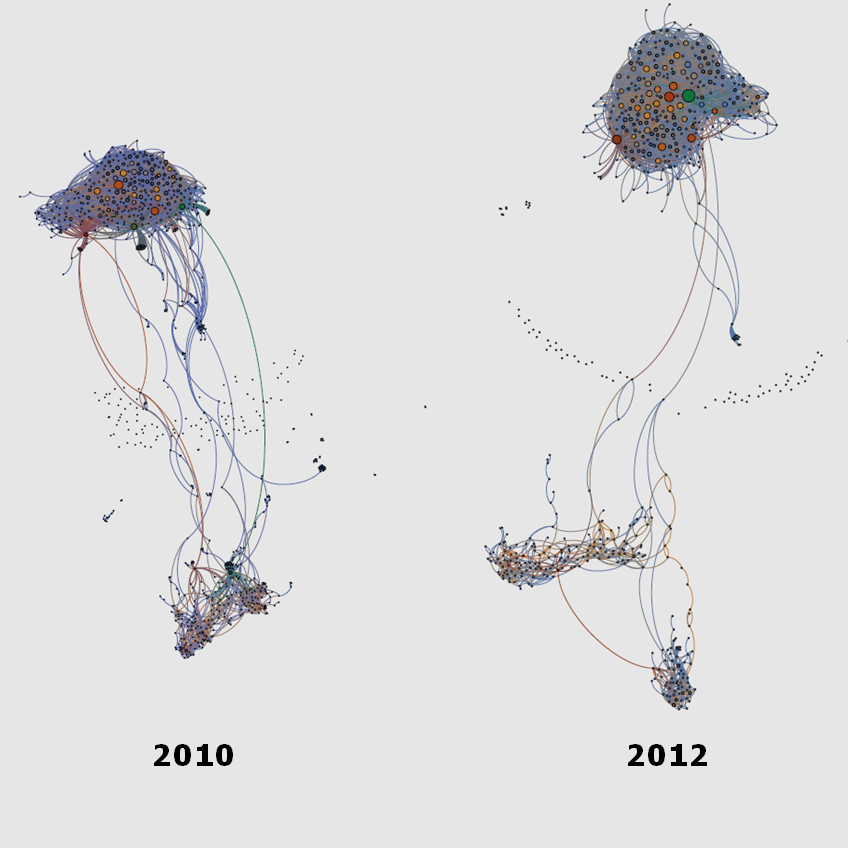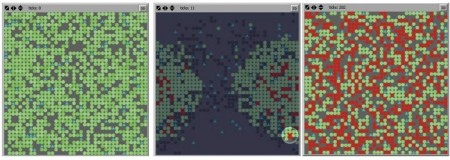Hi,
you’ve probably reached this blog after listening to my interview with Jian Ghomeshi on CBC Radio Canada’s programme Q. In case you missed it, here’s the podcast:
In this post, you’ll find some background information about my ongoing research on internet censorship – mainly in collaboration with Paola Tubaro (University of Greenwich, UK) and other colleagues. Our focus is on unintended and negative effects of censorship, based on analyses of social media use conducted in the last few years.
In my latest book Les liaisons numériques. Vers une nouvelle sociabilité? [Digital Relationships. Towards a New Sociability?, Paris, Seuil, 2010] I dealt with the topic of pro-ana (short for “pro-anorexia”) and pro-mia (“pro-bulimia”) websites, blogs and forums of persons with eating disorders. The most controversial among them have gone as far as to claim that eating disorders are a choice or a lifestyle, rather than conditions. A grant from the French National Research Agency (ANR) allowed me and my colleagues to lauch ANAMIA, a large-scale study on eating disorder-oriented online communities.
 ANAMIA research project – featured on Boing Boing
ANAMIA research project – featured on Boing Boing
Since the early 2000s, fears that these websites may induce unhealthy behaviours (possibly in young and adolescent viewers), have prompted many web services to remove them, while some countries have considered outlawing them. Yet eating-disorder related Web communities continue to proliferate. They have migrated to more hidden platforms, barred entry to outsiders, concealed their true nature, and relocated in foreign countries. In a previous post published on Bodyspacesociety blog, I have dubbed this the “toothpaste tube effect“: squeezed from one service, controversial contents re-group elsewhere. Paradoxically, censorship multiplies these websites – if only because of the urge to duplicate contents for backup purposes, in case they have to shut down and move!

Mapping pro-ED websites (France, 2010-2012) – ANAMIA research project
Today, these websites are less open and less visible, though still numerous and densely connected with one another. Thus, they can still influence their users, just as before; but it has become harder for health and nutrition campaigns to locate them and reach out to their users.
Our results indicate that Internet censorship is ineffective and inefficient: it has failed to stop “negative” influences, and has made it more difficult for “positive” influences to operate.
In another study (ICCU – Internet Censorship and Civil Unrest), started during the 2011 UK riots and currently following-up on the Greek protests, we looked at the potential effects on civil violence of restrictions to access to the Internet. Leaving aside issues of technical feasibility and legal and ethical acceptability, would net censorship work? Would it stop widespread violence?

Social scenarios corresponding to varying levels of censorship – ICCU research project
We show that it wouldn’t. Its effect would be to interrupt coordination of both unlawful agitation and community pacification efforts, if not even policing: so neither “positive” nor “negative” social influences, so to speak, would display their effects. Censorship doesn’t reduce the level of violence, but changes its pattern. Specifically, it generates a steadily high level of violence, while its absence produces only “peaks” of violence, with periods of social peace between them.
Again, censorship wouldn’t achieve its aims: its social cost (in terms of giving up freedom of speech) is too high, for such meagre results.
Further readings about ANAMIA and ICCU:
Casilli, Antonio A. & Paola Tubaro (2012). Social media censorship in times of political unrest. A social simulation experiment on the UK riots. Bulletin of Sociological Methodology, 115 (1), forthcoming.
Casilli, Antonio A., Tubaro, Paola & Pedro Araya (2012). Ten years of Ana. Lessons from a transdisciplinary body of literature on online pro-eating disorder websites. Social Science Information, 51 (1), pp. 121-139.
Casilli, Antonio A. & Paola Tubaro (2011). Why Net Censorship in Times of Political Unrest Results in More Violent Uprisings. A Social Simulation Experiment on the UK Riots. Social Science Research Network, working paper.
Casilli, Antonio A. (2010). Les Liaisons numériques : vers une nouvelle sociabilité ? [Digital Relationships: Towards a New Sociability?], Paris, Seuil.